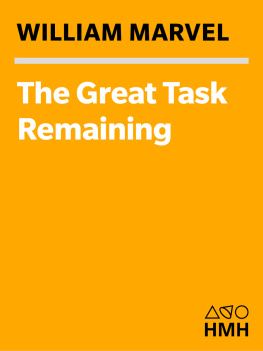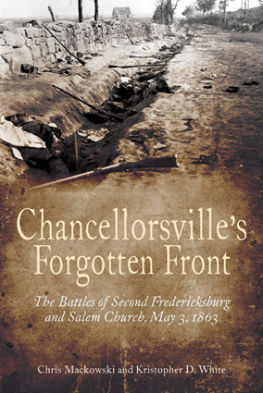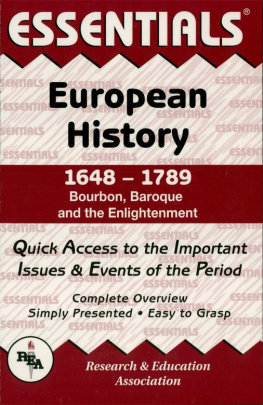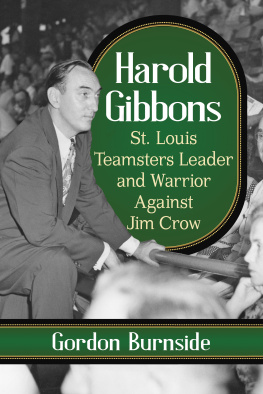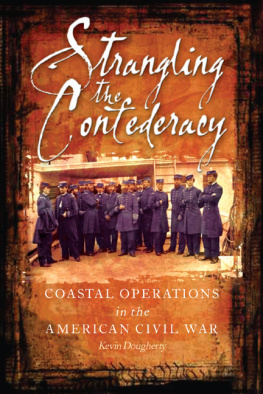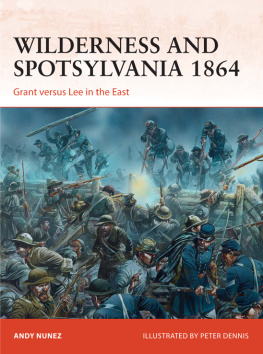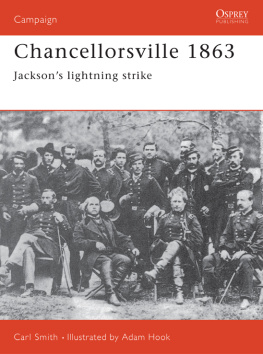BURNSIDE
1991 The University of North Carolina Press
All rights reserved
Manufactured in the United States of America
The paper in this book meets the guidelines for permanence and
durability of the Committee on Production Guidelines for Book
Longevity of the Council on Library Resources.
95 94 93 92 91 5 4 3 2 1
Library of Congress Cataloging-in-Publication Data
Marvel, William.
Burnside / by William Marvel.
p. cm.
Includes bibliographical references and index.
ISBN: 978-0-8078-7134-8
1. Burnside, Ambrose Everett, 18241881. 2. Generals
United StatesBiography. 3. United States. ArmyBiography.
4. United StatesHistoryCivil War, 18611865Campaigns.
I. Title.
E467.1.B8M37 1991
973.73dc20
[B] 91-8419
CIP
THIS BOOK WAS DIGITALLY PRINTED.
FOR ELIZABETH,
WHO BORE MORE FOR BURNSIDE THAN I
CONTENTS
CHAPTER ONE
Armd YearYear of the Struggle
CHAPTER TWO
The Carolina Shore
CHAPTER THREE
My Maryland
CHAPTER FOUR
Winter of Discontent
CHAPTER FIVE
Chants of Ohio
CHAPTER SIX
Twice across the Cumberland
CHAPTER SEVEN
Again Virginias Summer Sky
Epilogue:
The Undiscoverd Country
A section of illustrations will be found following .
MAPS
1. First Bull Run
2. The North Carolina Sounds
3. Battles of Roanoke and Newbern
4. The Eastern Theater, 1862
5. South Mountain
6. Antietam
7. Fredericksburg
8. Kentucky
9. East Tennessee
10. Knoxville
11. The Eastern Theater, 1864
12. The Wilderness and Spotsylvania
13. The Crater, 1:00 P.M.
PREFACE
During the latter half of the last century, Joel Headley supplemented his income by writing popular histories and biographies. He began composing an account of the Civil War while it was in progress. The conflict outgrew his expectations, however, and by November 1, 1862, he closed volume one and sent it to the publisher, concluding it with the events of June. In that first volume, written during the final days of George McClellans military career, Headley spoke very highly of Ambrose Burnside, referring to his accustomed energy, which secured the coast of North Carolina in a dazzling campaign. The frontispiece consisted of a collection of generals portraits, arranged in an oval around McClellans. Burnsides image occupied the second place of honor, at top center. By contrast, Henry Hallecks cameo was at bottom center, and U. S. Grants at the upper left.
Volume two of Headleys Great Rebellion did not go to press until 1866. Early in that work the author roundly criticized Burnsides lethargy at Antietam, a battle fought six weeks before that same writer released the laudatory passages of volume one. Headley then lay all the blame for the repulse at Fredericksburg on Burnside, after which he hardly mentioned that general throughout the rest of the book. What could have wrought such a transformation in his treatment of the man? Was Headley temporarily blinded by Burnsides initial success, or did the soldier spiral into deserved obscurity through his own shortcomings?
The timing of the publication of Headleys first volume could not have been more telling, for it implies Burnside was not found wanting at Antietam: that indictment was manufactured in 1863, by the deposed George McClellan. Little Macs accusations, now demonstrably false, seemed perfectly plausible by then, for the costly setback at Fredericksburg was fresh in the public memory. Burnside had publicly accepted responsibility for the defeat, though it was not altogether his, and that extraordinary act of generosity became the watchword of those subordinates who felt it necessary to defend their own performance. Burnsides humble demeanor spawned a seed of distrust when he inherited the army, and his insistence on assuming blame for the lost battle fertilized that seed, which blossomed into a cabal that foiled his next campaign and finally turned most of the army against him. The Army of the Potomac never again had any faith in Burnside, and that poor opinion was itself part and parcel of his other great defeat, at the Crater.
Burnside never defended himself against his critics, save through the medium of official inquiries. A public controversy, he feared, would create discord out of all proportion to any benefit that might accrue to his reputation. He sincerely believedas he stubbornly believed in the natural goodness of menthat history would vindicate him. He was wrong on both counts, and his silence has worked against him. Though he spent but nine of his forty months of Civil War service with them, it was the sneering officers of the Army of the Potomac who most often wrote about him, and the modern perspective of Burnside is framed by their biased remarks and often-unsubstantiated recollections, almost none of which were published until the man was dead.
Historians who should have known better have used this chorus of contempt without questioning its accuracy, painting a dark portrait with strokes of bitter sarcasm. The myth of Burnside the Incapable has thus become self-perpetuating, and modern Civil War seminars abound with speakers who delight in finding ever-more-humorous means of expressing his capacity for failure. Ambrose Burnside may be the most maligned figure of the war, and anyone who has studied it enough to undertake his biography has been thoroughly indoctrinated in this negative mystique. Indeed, this effort began with the underlying expectation that a hundred years of accumulated criticism could not prove wrong, but the further the investigation progressed the clearer it became that Burnsides legendary incompetence was, like most legends, largely apocryphal. A real man emerged at last who was neither genius nor blockhead, who blundered in ways no different from some of the great heroes of his agewhom he occasionally outsmartedand whose downfall may have been his own honest, humble, and trusting manner.
BURNSIDE
It is better to trust in the Lord than
to put confidence in man.
Psalms 118:8
PROLOGUE: THE RIVER
As the steamboat pulled away from Cincinnati, two young subalterns, stood on the passenger deck in fresh blue single-breasted coats and visored army caps. In this early autumn of 1847 word had yet to reach the Ohio River country of Winfield Scotts victories around Mexico City, so the two eager officers had no idea that the battles in which they had dreamed of distinguishing themselves would never occur.
The larger of the two soldiers stood fully six feet tall, with a deep chest and broad shoulders decorated with the blank scarlet straps of a brevet second lieutenant of artillery. He cultivated a bushy new pair of muttonchop whiskers that met his moustache on either side, but despite his twenty-three years his bright brown hair was particularly thin on top. Though his size was intimidating, he greeted people with such habitual good humor that they were drawn to him in a crowd, almost magnetically. One man, so drawn, invited the brawny lieutenant to a game of euchre. The stranger also asked a third traveler, who agreed to join them in apparent indifference.
At first the officer won everything. After a time he began to lose a hand or two, then his luck turned inexorably bad. Perhaps everyone but the young soldier realized that the two sharps had conspired to clean him out, and by the time the boat docked at Louisville, they had done so.


